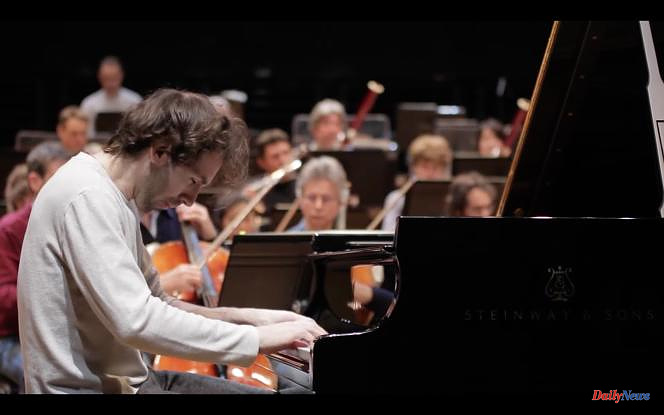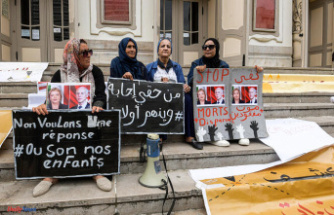It didn't take long for 25-year-old Alexander Kantorow to make a name for himself. Because, in the family, we knew better the father, violinist and conductor, Jean-Jacques Kantorow. But when Kantorow junior unanimously won the grand prize of the international Tchaikovsky competition in June 2019, it was for him the moment of a shift towards personal and international notoriety.
What is less known is that in addition to winning the most dreaded piano competition, the young pianist won the gold medal which is awarded, exceptionally, to the best of the best, all categories combined – organized every four years since 1958, the competition opened, after the piano and the violin, to the cello (in 1962), to singing (in 1966) and to wind instruments (in 2019).
Another singularity: the competition has mostly rewarded Russian pianists, with a few exceptions including the notable one, of the first edition, in 1958, which saw the American Van Cliburn (1934-2013) win the grand prize, in full Cold War… and return home as a hero.
In the final of the Tchaikovsky Competition, Alexander Kantorow performed in two concertos, including Piano Concerto No. 2 in G major, Op. 44 (1879-1880), by Piotr Ilitch Tchaikovsky – much less rehashed than the first – which he gave in concert, in December 2022, with the Strasbourg Philharmonic Orchestra (very fit) and its (excellent) director musical, the Uzbek Aziz Shokhakimov.
Extraordinary relaxation
The work is atypical: in the first movement, the pianist waits for a long orchestral sequence before engaging himself in a long solo cadenza. The second movement is even more surprising: it begins with a long violin solo, and, when we think that the pianist's turn has come, the solo cello takes over.
The two bows then face off in a duel in the form of a recitative in which only the spoken word is missing! Strange but magnificent movement in which the piano has only a secondary role... Only the finale, sparkling and virtuoso, falls within the norm of a romantic concerto.
Alexandre Kantorow, slender body and face of young Delacroix, would seem almost lymphatic. But what is actually an extraordinary relaxation goes to the tips of his very long fingers and reserves one of the most beautiful piano sounds there is, clear and deep at the same time. And this relaxation also knows how to release the energy needed to crackle (without the slightest dryness) the virtuoso strokes.
The best part of this concert (recorded on December 8, 2022) is probably what comes at the end of the recording: a paraphrase by Georges Cziffra (1921-1994) of La Valse triste (1913), by Franz von Vecsey, and a transcription by Franz Liszt from Litanei auf das Fest Allerseelen (1816), by Franz Schubert, given in bis. In the first, Kantorow manages to put in the background the virtuosity of the lines added by Cziffra to better bring out the original song and its capsized melancholy. In the second, one of Schubert's finest lieder, the pianist quite simply reaches to the heart of sound and music. It's a beauty to cry.












